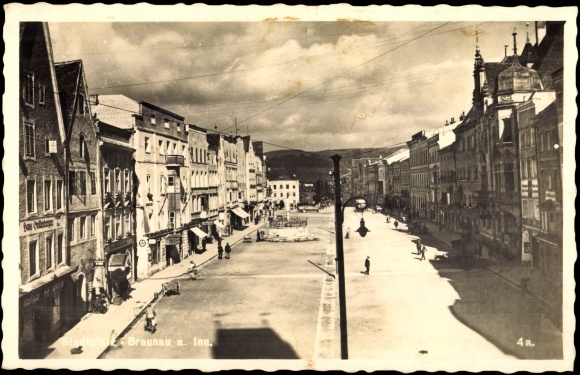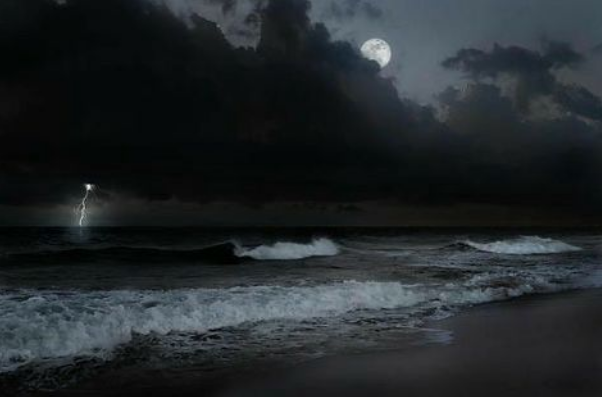By Devan Vanderpoel
It was a charming little town, Braunau am Inn. In the summer months of 1897, the cobblestone streets, lined with gray, blue, and yellow homes of traditional as well as classical architecture, the likes of which would one day give the Austrian town an idyllic appearance, emanated the sun’s glaring heat so that the air hung distorted over the horizon like gas hovers over a stove. This was before the Second World War, and before the First. This was before the turmoil, before the trenches were dug and the death camps were built and before Stalingrad and before a certain a certain 30 foot-wide crater in Japan – the well-intended kind. Of course.
Situated on the lower Inn River, below its merging with the Salzach, which today serves as the border between Austria and the German state of Bavaria, the town reeks of history. It was handed back and forth between Germany and the Austro-Hungarian Empire three times over a period of forty years – once in 1779 under the Treaty of Teschen, by which it became Austrian, once again under the 1809 Treaty of Schönbrunn, and finally, during the Congress of Vienna, Bavaria ceded the teeny, meaningless town back over to its Austrian neighbours, under whose ownership it remains today. Although, it did pass back over one other time, during the Anschluss, when Nazi Germany annexed Austria in 1938.
The inhabitants of Braunau am Inn were a close-knit and rural bunch, outright conservative. It was a simple, ordinary town. And yet if I ever find myself travelling through that region of Austria, whistling down a half-empty Bundesautobahnen at some speed, I could not help clenching my wrists against the steering wheel at the sight of a Willkommen in Braunau am Inn road sign. I might even have to pull over – after having travelled on a while longer – and take a deep breath, just breathing and thinking. After a few minutes, when the blood, seething, recedes from the veins that flood my hands like green-blue rivers that seem to be ready to burst from my skin in anger and stupefaction, I would awake from my deep thoughts and get back on the road. In the end, thinking about things gone past is pointless. Otherwise, I wouldn’t get anywhere.
Erwin Krause was 7 years old when he moved to Braunau am Inn. His parents, Margarethe and Ernst Krause, were brewers. Erwin remembers the day he and his family arrived – on some days, the vision is blurry, some bits amiss, others poking out unexpectedly, but every now and then, when he least expects it, the memory bites back.
“It’s quiet.”
“Ja, my boy. It will be a change.” replied Erwin’s father with a smile that seemed too big for his face. He had dark brown hair and hazel eyes, and eyebrows that would always show how he felt, a feature that had evidently passed on to Erwin – whose eyebrows were alert with innocent curiosity and amazement at everything he saw. Streaked with a few solitary silver streams, Erwin’s mother’s long blonde hair always amazed Erwin. He got her green eyes, and her gentleness. Erwin’s messy curls, however, apparently skipped a generation or two, for both his parents had hair straight as a pin.
“A very good change! Mama will definitely enjoy some peace and quiet. You see, Erwin? It is nice here.” Erwin’s eyebrows made an unconvinced gesture. “Come on. Erwin. Can you see?” she said, pointing toward the end of the street.
Erwin looked, wide-eyed, at a group of children at the end of the road. They seemed around his age, although some were older, and were playing a game. Their innocent cries and laughter pierced the silence and echoed down the street before becoming lost at a corner.
“Papa. Papa. Look!”
“I see them, my boy. I told you it isn’t so boring here.” Erwin’s father ruffled his son’s wavy hair bemusedly. He glanced at his wife with a wry smile – which Erwin, focused on the children, did not notice. His eyebrows suddenly became serious. “Why don’t you go and play with the kids, Erwin. Hop Hop, go along.” He said, patting a reluctant Erwin on the back. After a moment of hesitation, he hurried off to play.
When you’re seven, the world is big, but wonderful. I used to love to swim when I was a kid; racing my brothers through the water, diving off an outstretched pier on a sweltering summer day, playing Marco Polo until my eyes were blotchy from cheating, I couldn’t get enough of it. But I found nothing more exhilarating than swimming at night. I was terrified but enthralled by the darkest parts of the water. Releasing my breath meant I had only a moment underneath, but it allowed me to let myself be completely free as I sunk, motionless, into the black depths. As my lungs demanded oxygen my heartbeat would accelate, drumming loudly in my head. But before the my body forced me to kick out and race to the surface, I would stare at the deep, dark unknown that surrounded me like menacing sharks, half-childishly mesmerised, half-afraid of what could be hiding deep within it, imagining all sorts of things lurking there. I would deliberately evoke my biggest fears, because it was somehow fun to test myself. When I rose up for air, I would swim as fast as I could possibly go until I reached the edge, as if whatever was down there had followed me out and was inches from swallowing me up. Maybe I was an adrenaline junkie, but I think I was just unaware of what real danger was. When you’re seven, fear, curiosity, and amazement are flexible concepts.
You could be staring down the eyes of evil itself and have no idea.
Erwin liked to tell himself he knew, all those years ago. But the truth was, just like any other seven year old, there was no way he could have.
“Hi, can I play?”
‘You new here?”
“He looks new.”
“Of course he’s new, look at his shoes.”
“I’m from Vienna. I’m moving in today.”
“Told you so.”
“You’re some genius Peter.”
“Shut up.”
“Ouch!”
“What are you gonna’ do? Hit a girl?”
“Maybe I wi―”
“Stop it! Both of you. Sorry about them. What’s your name?”
“Erwin.”
“Nice to meet you Erwin. This is Peter and Erika, twins. Over here is Karin, Hans, and that’s Karl. I’m Walter – the oldest. If you wanna play with us, you’ve gotta be it first?”
“Sure.”
“Hey! I’m playing too!” Erwin turned to look at the newcomer. He was short, wore simple clothes, like the other kids. He had a wide face, dark eyebrows, and a nose that was just short of being large enough to distract. His straight, greasy jet-black hair was parted to the left. “So you’re Erwin. My parents told me you’ll be staying right across from us. That makes us neighbours. I’m Adolf, by the way.”
To be continued.



